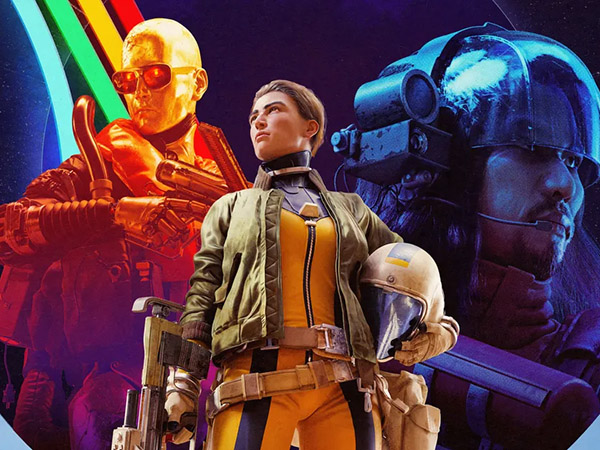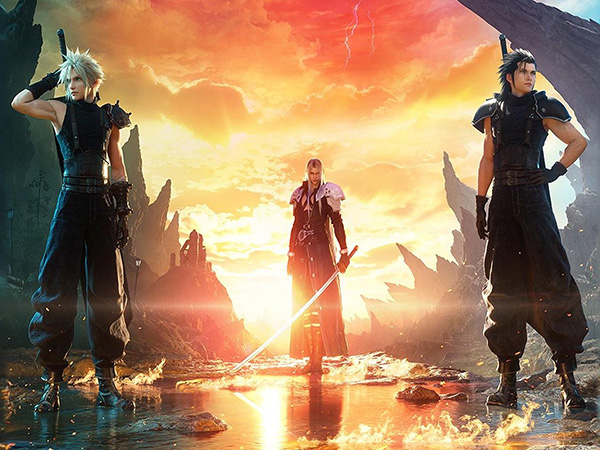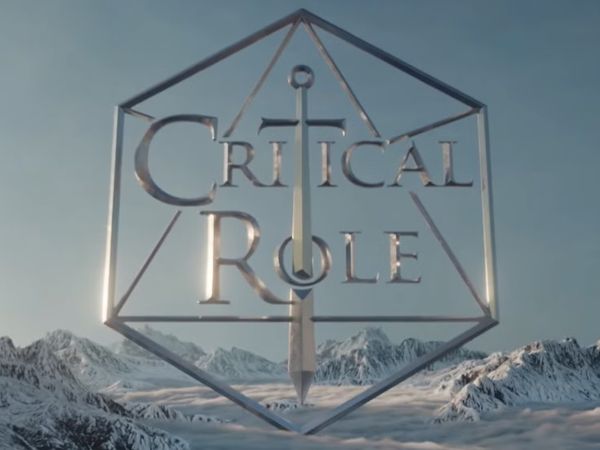Nagyon finoman fogalmazunk, ha azt állítjuk, hogy a 2014-es Lords of the Fallen nem aratott osztatlan sikereket a játékosok körében, de ez nem gátolta meg a CI Games csapatát abban, hogy elkészítse a soulslike folytatását.
A stúdió saját bevallása szerint a Lords of the Fallen 2 eredetileg egy AA-kategóriás címnek indult, a fejlesztés során azonban akkorára nőtt a játék, hogy a csapat jó esélyt lát arra, hogy a zsáner rajongóinak egy új kedvence és egy hosszú életű franchise első alappillére váljon belőle.
Ha igaznak bizonyulnak a CI Games reményei, akkor a sötét hangulatú soulslike-szériája elfoglalhatja a helyét a stúdió másik sikersorozata, a Sniper: Ghost Warrior mellett. Habár a mesterlövészetre kihegyezett franchise epizódjai sosem sikerültek tökéletesre, mára mégis több mint 11 millió eladott példánnyal büszkélkedhet a széria.
A Lords of the Fallen 2 egyébként határozottan az új generációt célozza meg, hiszen PC mellett Xbox Series X/S-en és PlayStation 5-ön várható a megjelenés, azt viszont egyelőre nem tudjuk, hogy erre pontosan mikor kerül sor.






CI-nek vannak olyan játékai amikhez olyan képernyőmentéseket tettek, hogy benne sincs a játékban. Szín csalás
Bakker..... inkább nem mondok semmit.
A 2.rész is hasonló lesz akkor inkább ne is csinálják meg megkímélnek egy újabb csalódástól.
"Wow! Just... wow! As someone who actually worked on a bunch of these games (in some cases, running the projects, no less), I'm very impressed indeed by your noble sacrifice! Boy, the stories I could tell about development. But there are some topics that really can't be discussed without alcohol ;). A couple of bits of trivia concerning the games, though. Firstly, you mention another engine at the start as being used in some of the early games (e.g. Code of Honor) - what you're actually looking at is an earlier iteration of the Chrome engine. Second - yes, you got City's modus operandi exactly right: it was all about recycling as much as possible. These games were sold at bargain bin prices in the first place, so I don't think anybody on the team ever felt like we're screwing anybody over - but I don't think anybody ever had any delusions of working on a great game, either. I will say this, however: I think most people did genuinely try to do the best job possible given the resources at hand. It's just that these resources were always calculated for the absolute minimum. Some of those games were literally done in 3-4 months. It wasn't until Sniper: Ghost Warrior that the company made a deliberate shift away from the budget sector. Even then, you can plainly see that while the company marketed SGW as a genuine AAA game, it... wasn't exactly that, was it? :)
It is a slight pity you chose the alphabetical order for this video, as I think chronological order would have made for more interesting viewing. You would be able to see more clearly the different phases in the company's history - first, the rail shooter games developed on their own internal engine, then a second stage with Chrome, then the third with Jupiter EX, and finally, the "AAA" era with a new Chrome version and then Cry Engine. I can't say much about the first and last eras, but with regards to the middle two phases: Chrome was a remarkable engine to work with, because it had the worst AI known to mankind. Actually, it really didn't have AI to speak of - the enemies would move straight from waypoint to waypoint, and oscillated between deadly accuracy and total incompetence. It was possible to make a decent game with this AI - Techland did it with Call of Juarez, for instance - but obviously making good gameplay with such a system was a time-consuming, iterative process, which wasn't possible at City. As for Jupiter EX - that was a genuine barrel-load of fun. I had the pleasure of managing Terrorist Takedown 2, which was our very first project on Jupiter. The project very nearly drove me crazy, as the deadlines were impossible (though long by City standards - the whole thing took eight months, I think. But that's including everyone learning the new engine...), and I recall one particular night towards the end of the project where I just lay there in bed staring at the ceiling until morning, because my brain couldn't stop trying to figure out how to get the game finished on time (so, I guess we did care, though I'm not sure if you can call that love ;) ). Nonetheless, when I say it was a pleasure, I don't mean that sarcastically - for us, working on the project, it was just a fantastic feeling, leaving Chrome behind for a good new engine, and figuring out all the cool things that could be done with it. This was followed by Code of Honor 2, which was even more fun, because we actually knew what we were doing with the engine. But there's a great irony about Code of Honor 2 - namely, from the production perspective, there was so much innovation in the gameplay and level design, but from the player's perspective, it turned out to be one of the most underwhelming games we did on Jupiter. The problem was that our key innovation was modular level design, which we thought would allow us to make a bigger game with less effort, and concentrate more on good gameplay while we're at it. Unfortunately, upper management saw it as an opportunity to simply make the game faster and cheaper, so the end result was utter blandness, and none of what we wanted to achieve. Also, the snakes: there we are, crunching to get the game done on a crazy schedule, and management decides they absolutely must have snakes in the game, because... well, just because. I'm kind of surprised you didn't pick up on the snakes in the video, as they must have been the most ridiculously shitty element in the game - but then again, they were also lousy in that you could basically not notice them, so maybe that's what happened ;).
Later Jupiter EX projects were all about recycling, and they got more and more demoralising, because there was no longer any satisfaction: we knew what we were doing, and we knew we could make a good game on Jupiter given the opportunity, but we also knew we wouldn't have that opportunity. Each new game had environments basically re-cut from existing assets (well, that was the theory at least: in practice, the environment team did their best to rework the recycled assets to make things feel new), and the guns, of course, would transfer from game to game, with just a couple of new additions each time. And yes, they got briefer and briefer. Although on that last point, I actually felt at the time, and I still do, that their brevity was actually a good thing, both from an end-user perspective and from a marketing perspective. No one agreed with me, of course, as everyone was too busy feeling ashamed about not having 20 hours of gameplay. But the way I saw it, we were selling a movie-length gameplay experience, which is actually a cool thing, precisely because it's a game you can finish in one evening, when most people actually finish very few of their games, precisely because they drag on and on. Most video game stories are two hour narratives artificially stretched out to twenty hours through repetitive gameplay, so it would have made sense to embrace the two hour experience as a sort of unique selling point. And it comes at the price of a movie ticket (sometimes less), so it wasn't a rip-off, either.
Oh, one other bit of trivia: although I can't for the life of me recall if the American accent of our hero in Code of Honor was intentional or not, it actually would make perfect sense. As the name indicates, the French Foreign Legion is a formation where soldiers are all foreign citizens. It's a very unique force, with a kind of romantic charm to it (you know - these days, of course, they screen their recruits very carefully, but in the past, that was the place people would go when they escaped their country wanted for murder and the like). It's really very unfortunate that it only ever shows up in Van Damme films and City Interactive games. It deserves better.
Thanks again for your efforts on this video! I'm actually pretty amazed it only took you two months. And you deserve a bloody medal for getting through Sniper: Art of Victory..."
hogy ha a 30-50-et számmal írod, akkor a 10-et miért betűvel?
Amúgy a maradék 40-ben ha nincs benne, abba te tuti beleképzeled :)
Szóval, most tényleg nem kötekedni akarok, de van egy Titan Quest ami számomra olyan jó élményeket nyújtott mint egy Diablo 2 vagy egy Resticrated Area esetleg Space Hack. És sosem volt a kedvenc műfajom, de egyszer rákattantam a Diablo 2-re és onnantól műfajon belül engedékenyebb voltam más címekkel is.
Így volt ez a SoulsLike játékokkal is. Lords of The Fallen tetszett de nem ment. Dark Soulst akartam szeretni (nagy számok törvénye alapján ha ennyien imádják biztos jó, de nem ment. Volt még pár próbálkozás, de egyszerűen kevésnek éreztem az időmet ahhoz, hogy beletanuljak ezekbe a "szarokba". :D
Aztán jött a The Sourge, ami egy az egyben elhozta a Holnap Határa (Edge of Tomorrow) játékos adaptációját, és a világ valamint stílus miatt elkezdtem játszani vele. Nekem ő volt a te Titan Quest.-ed. Amikor viszont végignyomtam, pontosabban "mire" végignyomtam, megtanultam játszani a soulslike játékokkal. Kiismertem a kiskapukat és megszoktam a hibáikat. Ezért sokkal de sokkal elnézőbb voltam azokkal a cuccosokkal is, amik addig nem érdekeltek mert a "dárkszólsz" féle játékok alapból nem érdekelnek és ha nem olyan világba játszódik amit szeretek, mégjobban nem.
Igazából csak arra vagyok kíváncsi, hogy nem e szokott eszedbe jutni, hogy más, addig nem érdekelt cím is tud akkora örömet, élményt, extázist!? okozni a stílusban, ami addig nem. Mert így közeledve a negyvenhez, én marhára félek attól, hogy kimaradok valami mocskosul jó dologból csak azért, mert korábban nem érdekelt. Főleg olyankor, amikor végül kiderül hogy a stílus, játékmenet is érdekel, csak más játéknál.
(Nem tudom, mennyire kuszáltam bele a magyarázatba magam, de remélem érthető) :D
Ha nem vagy még tag, regisztrálj! 2 perc az egész.